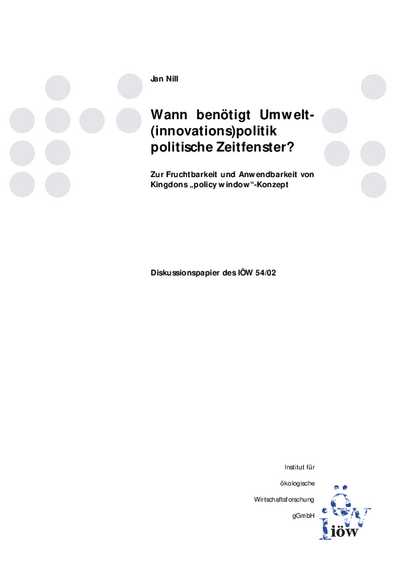Wann benötigt Umwelt(innovations)politik politische Zeitfenster?
A key hypothesis of the SUSTIME project is that time and resulting windows of opportunity play an important role for successful environmental innovation policies. This may be the case for windows in the techno-economic system, but the question arises inhowfar there is a need for windows of opportunity in the political system, too. The aim of the paper is to evaluate appropriate concepts of political science and public choice against this claim. The thrust of the analyses focuses on two models of windows and their determinants: the electoral cycle put forward by the economic theory of democracy as well as John Kingdon's policy window model. Building upon these models and taking into account selected empirical examples such as the termination of nuclear energy production and the catalyst vs. lean burn case, a modified concept of policy windows is developed and indicators for empirical operationalisation as well as a taxonomy of the role of time windows for environmental innovation policy are suggested.



